
Who needs tests? This AI diagnoses Covid from your sex, age and address
EDAS method detects specific respiratory pathogens using patented algorithms based on epidemiology and demography, and no testing equipment.
by Abigail Klein LeichmanAt the beginning of May, confident that the coronavirus curve was safely flattened, Israel sent its children back to school.
Within weeks, more than 200 new Covid-19 cases were diagnosed in Jerusalem alone, linked to a single infected “super spreader” teacher who taught in several schools.
As a new school year begins, Israel’s capital city is trying various strategies to avoid a repeat of that public-health catastrophe.
One solution it will use is a mathematical model that predicts — with no physical testing or patient contact – who’s likely to be infected and with what specific respiratory virus.
“The idea is to mathematically model the way infectious diseases move in the community,” explains EDAS Healthcare CEO Guy Livne.
EDAS stands for Electronic Diagnosis And Surveillance. This remarkable machine-learning technology grew out of research led by Dr.Gal Almogy and Prof. Ran Nir-Paz, a microbiology and infectious diseases expert at Hadassah-Hebrew University Medical Center.
“We were founded in 2018, and by January 2019 we were already tracking 14 respiratory pathogens in the Jerusalem district, including three types of influenza,” says Livne.
“For those 14 pathogens, the EDAS system identifies the non-infecting pathogens with 97% accuracy and identifies the pathogen causing the infection with 71% accuracy – based only on gender, age and home address.”
Livne said it took just a week to add the novel SARS-CoV-2 coronavirus to the platform’s AI engine.
“It doesn’t matter what the symptoms are or even if there are no symptoms, which happens often with corona,” says Livne.
“Our system doesn’t need symptoms. Just give us your age, gender and address in the Jerusalem district and we can immediately say what you don’t have and what we suspect you have been infected with.”
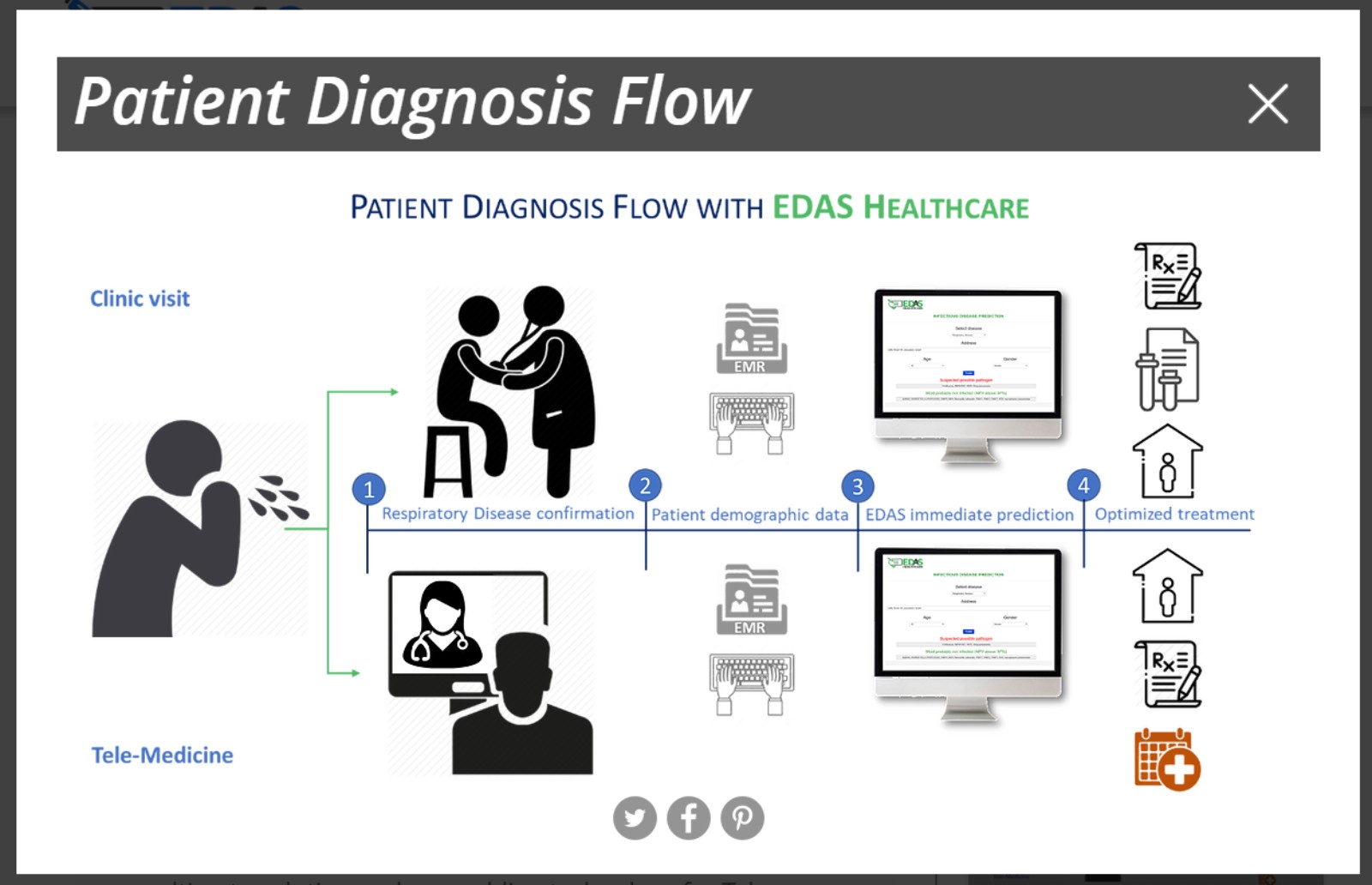
The instant diagnosis technology can be used in primary care and telemedicine situations, where Covid-19 testing isn’t available. If the patient is flagged “suspected” or “positive,” immediate steps can be taken to treat and isolate the patient until a standard PCR test can be done to confirm results.
It can also be used for daily mass population screening as a risk-management tool for the school system or for EMS or healthcare workers.
For the educational system, using anonymous age, gender and address data, “we can identify classes that could be problematic, so the municipality can close those classes to prevent the possible spread of infection and then send the students or teachers in that class for a PCR test,” Livne tells ISRAEL21c.
“Screening all populations on a daily basis, EDAS can provide information on who may be infected even before anyone suspects they are infected. A process could be created where those people will be required to come for testing that same day, thus breaking infection chains at least two to three days earlier. We are now discussing such pilot processes with a couple of municipalities.”
Tested on 50,000 people
EDAS Healthcare received a grant from the Israel Innovation Authority (IIA) to further test its US-patented decision support software. It’s already been tested on more than 50,000 Hadassah patients under Nir-Paz’s supervision.
“We receive the [PCR] tests done in Hadassah’s lab, and based on this data we track where the pathogen is currently active and where it is not, and which clusters of the population are infected down to a very small physical area,” says Livne.
“We call this local transmission zones (LTZs). We have a separate tracking ‘map’ for each pathogen. Our technology can distinguish between, for example, influenza and corona, which will become a real challenge to address in coming winter season.”
Combining LTZ data with patient demographic information provides the software with all it needs to produce pinpoint predictions. EDAS currently eliminates Covid-19 as the source of infection with over 98% accuracy, Livne notes.
No patient data is exposed
The IIA is funding further testing of the EDAS Covid-19 diagnostic model research at Hadassah Medical Center through the Hadasit Medical Research Services & Development tech-transfer company, and at Tel Aviv Sourasky Medical Center (Ichilov) through its inhouse I-Medata Center for innovation in data science.
Two of Israel’s national HMOs are interested in piloting the model, as is a hospital in the United Kingdom.
Livne emphasizes that the EDAS anonymization engine is approved for meeting privacy standards wherever it’s implemented.
“No patient data is exposed or can be derived during the course of operation. We continue to implement additional country-specific regulations to ensure meeting relevant HIPAA as well as GDPR regulations.”
Meanwhile, Jerusalem-based EDAS is working to match its 71% virus-specific accuracy for its Covid-19 algorithm, which currently stands at around 62%.
“Covid-19 behaves differently than other infectious respiratory diseases,” says Livne. “Right now, we can identify the non-infecting pathogens with more than 98% accuracy, but we need to improve the rate of false negatives because we don’t want to miss positives. We may need additional information from the municipalities to do that.”
Livne says he has not heard of others who have succeeded in building a system like EDAS.
EDAS Healthcare currently consists of four people: Livne is the CEO, Gil Mildworth is CBO, Arie Keren (who has a PhD in computer science and developed the models) is CTO and Nir-Paz is clinical aspects manager.
Livne, who has 20 years of experience in business intelligence (BI) systems, previously helped Israel’s Ministry of Health implement and model BI solutions in government-run hospitals.
For more information, click here
More about Health
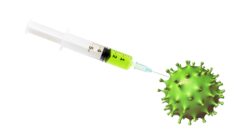
Bacteria could provide us with next-gen antiviral drugs
By ISRAEL21c Staff
Diet – the biggest Covid risk factor that nobody talks about
By Dr. Mariela Glandt
Zebrafish help scientists speed up tests for medical cannabis strains
By Abigail Klein Leichman
Organized sports improve mental resiliency during Covid-19
By Brian Blum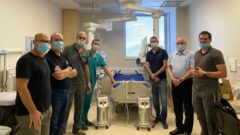
What’s the world’s favorite fizzy drinks maker doing fighting Covid?
By Abigail Klein Leichman
Cancer patients may not have higher Covid-19 risk
By Brian Blum
Data scientist predicts Israeli Covid peak may end soon
By Abigail Klein Leichman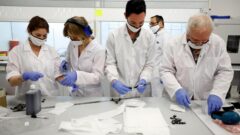
Israeli SonoMasks confirmed effective against Covid-19
By Abigail Klein Leichman
Fecal microbiome transplants limit weight regain
By ISRAEL21c Staff
Using the crowd to fight chronic health conditions
By Brian Blum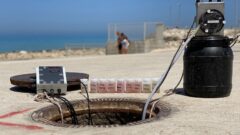
Covid-19 in wastewater poses a serious health threat
By ISRAEL21c Staff
Experimental Alzheimer’s drug may help kids with autism
By Abigail Klein Leichman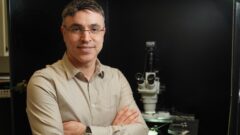
New breath test sniffs out Covid-19 in 30 seconds
By Brian Blum
DayTwo wins Roche Diabetes Care Innovation Contest
By ISRAEL21c Staff
Israelis and Emiratis to develop Covid stem-cell therapy
By Abigail Klein Leichman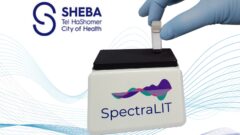
1-second Covid spit test shown 95% accurate so far
By Abigail Klein Leichman
New 2-hour cancer diagnosis and risk assessment
By Abigail Klein Leichman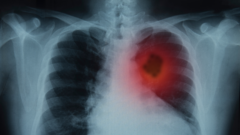

Joint deals on horizon as Israel and UAE join hands in peace
By Abigail Klein Leichman
Israel starts clinical trial of plasma-derived Covid drug
By Abigail Klein Leichman